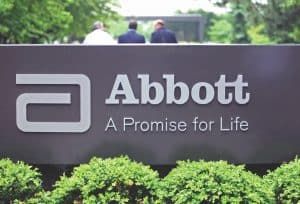Remicade loses out in ankylosing spondylitis
pharmafile | November 15, 2007 | News story | Sales and Marketing | TNF
NICE has rejected Schering-Plough's Remicade as a treatment for the debilitating form of spinal inflammation known as ankylosing spondylitis.
The Institute said clinical data had shown Remicade was not a cost effective treatment for ankylosing spondylitis (AS), but it did recommend two rival drugs, Abbott's Humira and Wyeth's Enbrel.
The reason for Remicade's rejection was down to cost. Treatment with the drug is nearly twice as expensive as with Humira or Enbrel.
Despite their approval in AS, neither Wyeth nor Abbott are entirely happy with the guidance, which places tough restrictions on access to their TNF-blocker drugs.
In particular, NICE says that if patients fail to respond adequately to a TNF-blocker, doctors should not try them on an alternative one in the hope of a better response.
Patient groups say they are disappointed with the ruling and claim that AS patients will suffer because of the reduction in choice.
A key difference between the three TNF-blockers is how they are administered to patients. Remicade is given by intravenous infusion, either in a hospital or the patients home, while patient's can inject themselves with Enbrel or Humira at home.
Patient group the National Ankylosing Spondylitis Society (NASS) says NICE's decision effectively reduces a patient's options from three to just one TNF-blocker product.
In particular it says patients who are unable to self-inject will lose out under the guidance.
The charity says significant evidence exists to show patients will react positively to one drug and not another, but that doctors cannot accurately predict which will best suit an individual.
Jane Skerrett, director of NASS, commented: "NICE's decision is devastating news for people living with severe ankylosing spondylitis.
"The three drugs under review from NICE are the only real treatment options for people with severe AS. NICE is condemning people who fail on just one of these advanced therapies to treatment with NSAIDS drugs they have already failed on – and a lifetime of pain and disability."
The patient group is now considering whether or not to appeal against the decision and Schering-Plough, which has already criticised NICEs recommendation, will likewise be considering an appeal.
In its written submission to NICE the pharma company said the conclusion 'appears seriously flawed', particularly in light of the clinical superiority of infliximab which it claims and which it says the appraisal acknowledges.
Schering Plough also claims that the guidance does not account for the fact that doses of infliximab vary with weight, which would affect its final cost to the NHS.
Related Content

AbbVie highlights treatment adherence
Patients with inflammatory diseases tend to be better at following their treatment regimes with TNF …

Abbott buys into Galapagos’ RA candidate
Abbott has struck a deal with Galapagos to develop and commercialise a promising oral JAK1 …
Price concession helps change NICE’s mind on Simponi
NICE has provisionally recommended Merck Sharp & Dohme’s Simponi for rheumatoid arthritis alongside other drugs …








